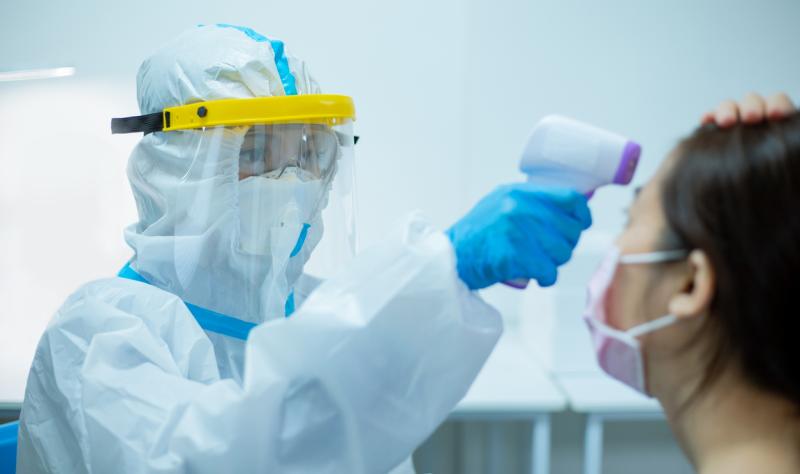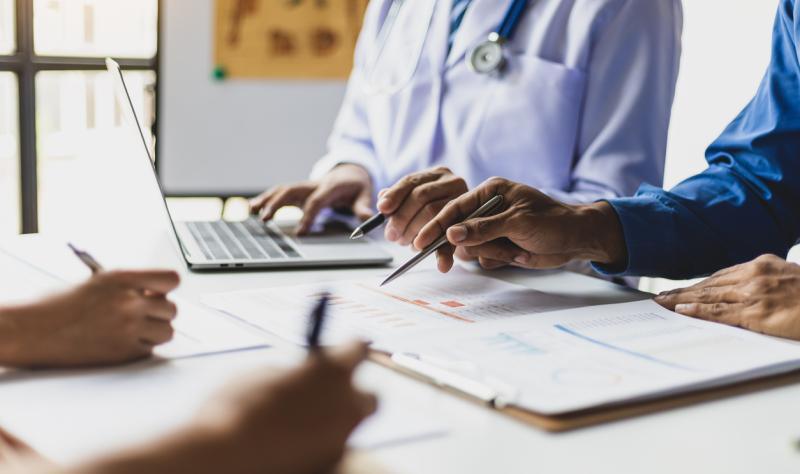Report proposes new framework to prepare for future pandemics
The Global Preparedness Monitoring Board says countries need to to bolster primary healthcare systems, establish a pandemic risk monitoring system, and strengthen cooperation.


Nearly 5 years after the COVID-19 pandemic exposed significant gaps in pandemic preparedness, a new report is calling for a “paradigm shift” in how the world prepares for the next pandemic.
The report from the Global Preparedness Monitoring Board (GPMB), launched yesterday at the World Health Summit in Berlin, argues that despite advances in science and technology, the world remains highly vulnerable to future pandemics because of persistent inequities, mistrust, and underinvestment in preparedness. It urges governments, in a fragmented world marked by uncertainty and volatility, to work together to bolster health systems, establish a pandemic risk monitoring system, and strengthen cooperation across sectors and borders.
The GPMB was established by the World Health Organization (WHO) and the World Bank in 2018 in the wake of the West Africa Ebola epidemic to monitor the world’s preparedness for pandemics and other health crises. In its first report, released in September 2019, the members of the independent board said the world wasn’t prepared to respond to a pandemic, and that proactive efforts were needed to detect and control potential infectious disease outbreaks.
Five years later, the GPMB says that while countries are still grappling with the profound and far-reaching consequence of the COVID-19 pandemic, they are concerned that many are too eager to move on without fully absorbing the lessons of the pandemic. And without a plan for the next pandemic, they fear the world could be even more vulnerable than it was in 2019.
“Pandemics are multidimensional shocks that demand coordinated, multisectoral responses,” Joy Phumaphi, GPMB co-chair and former minister of health of Botswana, said in a WHO press release. “Although there will be other pandemics, they will be different from pandemics of the past, and our preparedness needs to keep up with these changes.”
Stronger primary care, enhanced risk monitoring
The GPMB says one of the key lessons of COVID-19 is that societies need to look beyond the immediate disease prevention and containment efforts and anticipate the full range of impacts from a pandemic. Beyond the estimated 20 million deaths, those impacts have included trillions of dollars in economic losses and disruptions to social cohesion, mental health, and education that are still reverberating.
“Pandemics are not just health crises, but social and economic quakes that deepen inequalities and erode trust,” the report states.
To prepare for these types of shocks, the group says the path forward should focus on three actions: Care, measure, and cooperate.
The “care” section describes the need to build stronger primary healthcare systems that can detect and respond to a pandemic and minimize early harms while maintaining essential services and protecting frontline healthcare workers. A resilient primary healthcare system, the group argues, would be able to withstand the first wave of illnesses caused by an emerging disease, reduce reliance on drastic social measures, and protect secondary and tertiary healthcare facilities. It would also enhance good communication and build trust.
“In our increasingly volatile and uncertain world, real preparedness for pandemics and other health emergencies must be anchored in well-functioning and well financed primary health care systems,” said Kolinda Grabar-Kitarović, GPMB co-chair and former president of Croatia, adding that robust healthcare systems are crucial for building the trust needed for effective health response.
Although there will be other pandemics, they will be different from pandemics of the past, and our preparedness needs to keep up with these changes.
The “measure” component envisions a pandemic risk monitoring system that tracks threats, vulnerabilities, and preparedness in real-time. This observatory, as the report calls it, would integrate epidemiologic, economic, social, and environmental data from various sources into a single platform that could synthesize the information and support decision-making. Artificial intelligence and other technologies could be employed to improve the efficiency and timeliness of data analysis.
“Such a system would allow leaders to view pandemic risk in comprehensive, near-real-time terms, improve forecasting, and facilitate more effective resource allocation,” the group wrote.
International cooperation needed
To foster better cooperation and improve global health security during future pandemics, the GPMB urges countries to ratify, implement, and finance the WHO Pandemic Agreement—which was adopted by the World Health Assembly in May after 3 years of intense negotiation—and its annex on a Pathogen Access and Benefits Sharing System. Doing so, the group says, would help address the key gaps that undermined the COVID-19 response and establish “more structured and equitable mechanisms for international cooperation.”
“Adoption of the WHO Pandemic Agreement is a beacon of hope in a world weighed down by crisis,” the group wrote. “Born out of the depth of COVID-19’s impact, it signals that nations are prepared to work through their different perspectives and come to agreement on their common interests.”
The GPMB says it will work closely with the WHO and World Bank to ensure that its recommendations are implemented at next year’s United Nations High-Level Meeting on Pandemic Prevention, Preparedness and Response.



